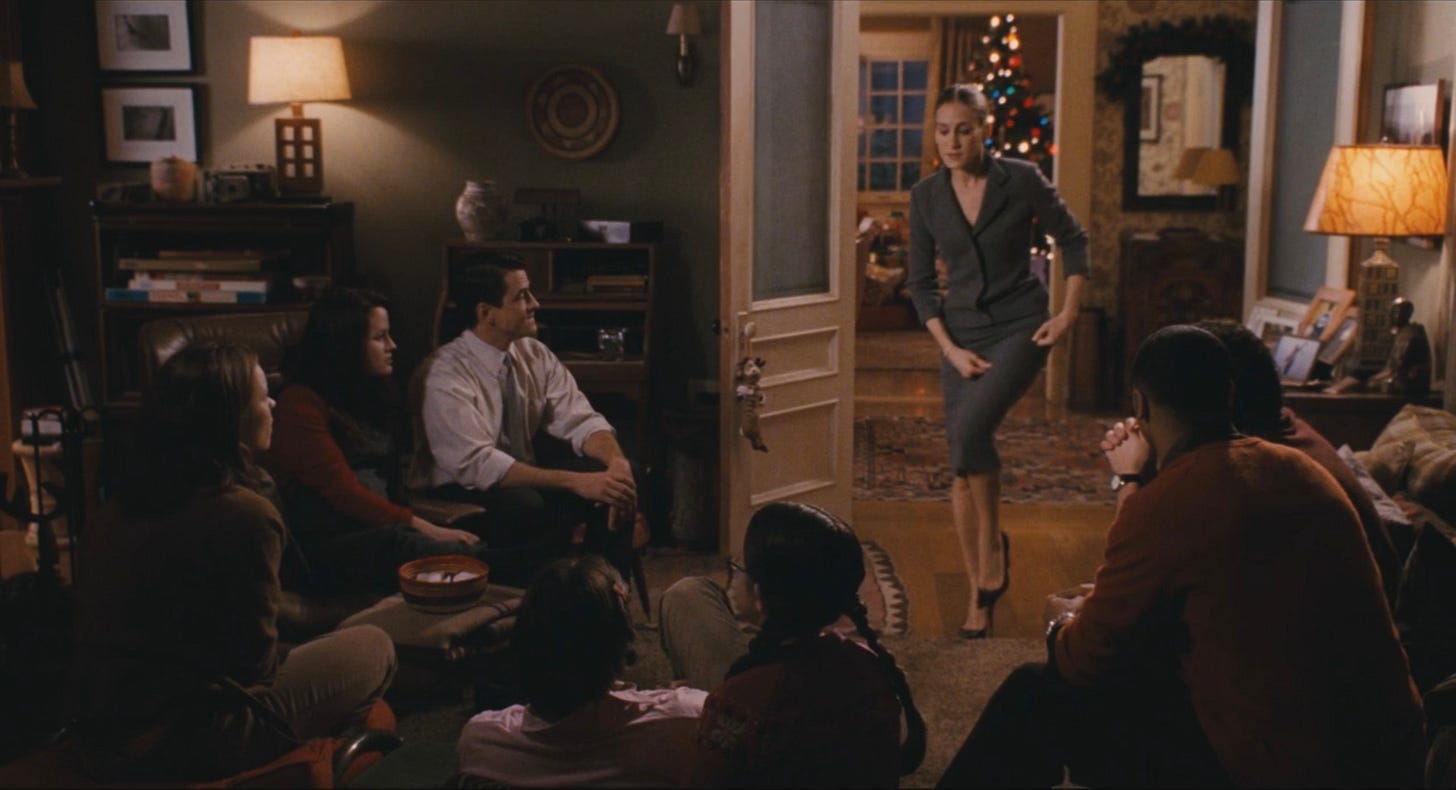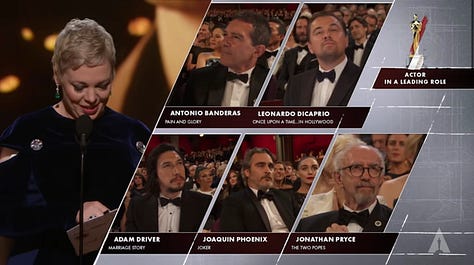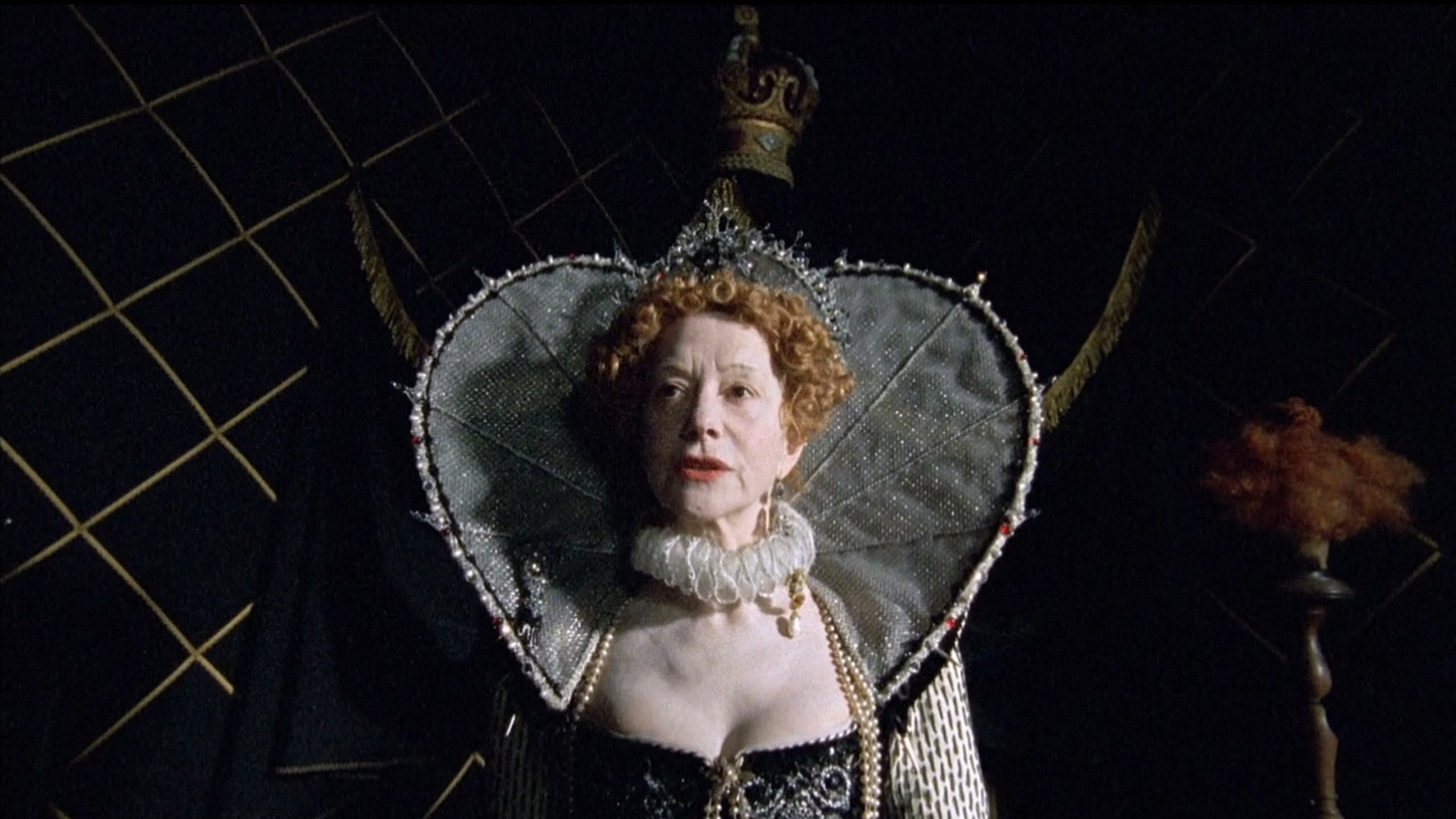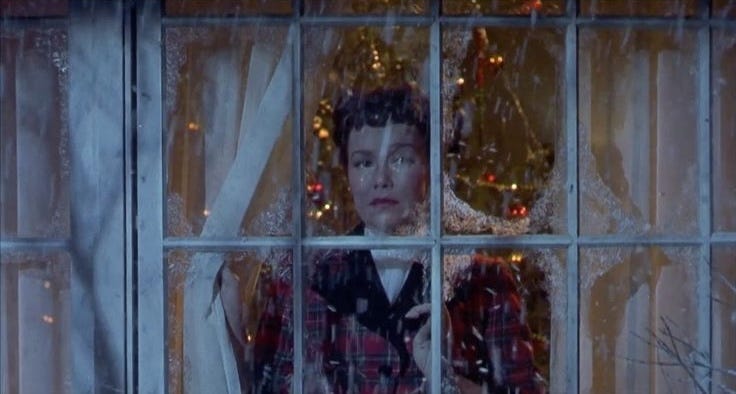December streaming
Programming for the Holiday Season (in all its peculiarities), alongside international superstars, international despots, and (of course!) holiday movies
Welcome to December streaming.
It’s the most wonderful time of the year: Hollywood is finally releasing all the movies I want to see this year, at once, over the next four weeks of December. I began the month quite auspiciously, patronizing a Quad screening of La Syndicaliste (2022) — a completely pedestrian French film about a real-life case of obstruction and harassment against a union representative of a French multinational nuclear powerhouse — which served as an excuse to see Isabelle Huppert, our greatest living actor, in person. And in fact, Mo and I may have just made our own lasting contribution to cinema: when the suspicious-acting man in our aisle tried to rush Madame Huppert at the end of her talk, we extended our knees out, bungling his progress long enough for the living legend to slip past with (at least) the protective shell of theater staff.
So that’s how Mo and I saved French cinema, which is now Spread lore. The only possible topic demanding such urgency this time of year would be Mme Huppert’s terrific turn in François Ozon’s Hitchcockian / Sirkian All-Lady Pop Musical Christmas Pastiche, 8 women (2002) — a personal favorite seasonal watch and the best misandrist murder mystery set at Christmastime. If that’s what he was rushing to ask her about, I apologize to that man.
We all have our favorite holiday movies that make us just a little too excited this time of year, and you’ll find all of them here: we’ve got a full roster of seasonally-appropriate programming, from the joys of family growing pains at Christmastime to the only truly neutral ground over the holidays: the historical costume drama. Plus: two icons of onscreen masculinity from completely different cultures, who nevertheless share a mastery of the cinematic dance scene and, somehow, almost co-starred in a Scorsese film together.
These presents aren’t going to unwrap themselves, so quiet up, and listen down nope, scratch that, reverse it! (and see the Golden-Globe nominated film Wonka, in theaters December 15).
There’s Been a Lot of Lying in this Family (and a Lot of Love): It’s Arrested Development!

Each Holiday Season, splintered families from all over the world reunite to temporarily co-habitate, co-celebrate, and co-regulate their warring interior lives. Many find themselves falling into old familial routines — or struggling to adjust to deviations from past rituals, rules, and traditions, particularly as new family members enter the equation. Life ebbs and flows with uncertainty, often causing us to grasp just that much tighter to the things that provide comfort, even as the past gets further and further beyond the horizon. And so, each year, grown adults travel (sometimes long) distances to other cities or suburban hamlets, contort their bodies to fit in twin-sized beds, brave their faces at hometown bars, negotiate generational differences, and wage war over the contents of their family coffee pot. Differences must be honored, unspoken codes must be followed, and purely logistically, it’s always just a little more complicated. With this in mind, and in the hopes that you all find yourself and your respective chosen families together, healthy, and safe this Holiday season, I’ve devised a program sensitive to the growing pains of life, featuring protagonists who have stopped, for whatever reason, from growing beyond their current state. Named for the cult comedy series starring late, great Brooklyn-native Jessica Walter (something-dale… I don’t know, Brookfeather, Raintree… it’s hot…it's very hot there… I’ve never been...get a warrant!) and in honor of its spiritual sister, Succession, ending this year, here are the fail-sons, scions, burnouts, layabouts, strugglers, early-achievers, underachievers, the affluential, the injured, and the dreamers; all those whose brains have hit pause, for whatever reason, and to whatever end. Give yourself allowance to fall back into the familiar while you still can this holiday season. Individual success and independence may be hard won virtues, but such things have relatively little significance to me this time of year. Remember, no man is a failure who has friends.
Renaissance, Yachtin' in Capri: “Leomania” and the Films of Leonardo DiCaprio
Speaking of arrested development, George Clooney once recounted a story to Esquire about playing a game of pickup basketball with Leonardo DiCaprio and his friends, only to absolutely crush them: “The discrepancy between their game and how they talked about their game made me think of how important it is to have someone in your life to tell you what's what,” the famous actor/director disclosed. “I'm not sure if Leo has someone like that.” On December 19, 1997, when I was just six years old, James Cameron’s Titanic, the original Christmas blockbuster, docked in North American theaters. At the center of the grand historical epic — which would go on to become one of the highest grossing films of all time and recipient of fourteen Academy Award nominations — were two rising stars: Kate Winslet, 22, and Leonardo DiCaprio, 23. Both were instantly famous, but the latter’s performance (and good looks) won him a particularly passionate international fanbase, most of which were young girls. The phenomenon, dubbed “Leomania,” kickstarted the global super-celebrity of the talented young star, who already had a vault of incredible performances under his belt as a former child actor, from carrying the beleaguered Seaver Family on his back in the final season of family sitcom Growing Pains to buzzy turns in dramas like What’s Eating Gilbert Grape (1993), This Boy's Life (1993), and Basketball Diaries (1995). It’s been over 25 years since “Leomania,” but Leo, as an actor, has only prolonged the larger cultural obsession. Famously picky about his projects, doggedly quiet about his (extremely messy) private life, and drawn to stories of short-fused, dim, and/or tortured men, Leo DiCaprio is arguably the greatest actor of his generation, committed to embodying a colorful Hollywood persona clearly forged in imitation of old idols like Jack Nicholson or Warren Beatty. But for young women of the 1990s, he represented so much more: the ultimate dreamboat with just a hint of danger, like the Artful Dodger if he graced the cover of People magazine. If you weren’t there for Leomania, you weren’t there. Popular wisdom cites Titanic as Leo’s breakout performance as a leading man, but really his Dicaprissance began a year prior with his unforgettable introduction — memorably set to Radiohead's “Talk Show Host” — in Baz Luhrmann’s zeitgeist-y, anachronistic Shakespeare adaptation, Romeo + Juliet (1996). Luhrmann has a distinct talent for molding young male actors into marketable heartthrobs (Paul Mercurio, Ewan McGregor, Justice Smith, Austin Butler…), but Leo DiCaprio is his greatest achievement in the pop cinematic arts. In Romeo + Juliet, Baz serves Leonardo DiCaprio up as the ultimate embodiment of effortless California cool, youthful angst, and beauty itself: you'd give up everything for this man, wouldn't you? Yes, a million teenagers replied, yes of course. And we all know that the first stop towards cultural domination is through the eyes and ears of teenage girls. After Titanic, Leo’s mug was everywhere, from Tiger Beat to Vanity Fair, the reluctant new face of teen horniness (which is not a crime) and the perfect fresh mold for the “bad boy” archetype; one headline in a teen magazine I perused on eBay promised to deliver “The Life and Times of a Titanic Love God!” You weren’t there. The sheer weight and burden of Titanic could have overwhelmed and sunk the career of any rising actor, but — after a few years of recalibration and bulking up — Leo returned to movies seemingly desperate to prove himself as a real performer, beginning with Steven Spielberg’s Catch Me if You Can (2002), and culminating in his latest, career-best work in this year’s Killers of the Flower Moon (2023), for which he’s a shoo-in to receive his seventh Academy Award nomination. That’s 20 years of moviemaking that’s more or less untouchable, working with some of our greatest living directors (including a prolific six-time collaboration with Martin Scorsese… seven if you count the 2015 short film with Robert De Niro that only ever played in a casino in Macau). After six nominations and losses, he finally won the Academy Award for Best Actor for the 2017 film Revenant — which felt like a career consolation prize, even though the actor was only 43 when he received it — really, he should have received the coveted prize for his full-bodied performance as OCD oil (and moviemaking) magnate Howard Hughes in The Aviator (2004)*. Leo’s filmography is far-too brief but a whole lot of fun: come for the ambitious accents and iconic freak-outs in films like The Departed (2006) and Inception (2010), but stay to see him play his Pussy Posse self in the unreleased Don’s Plum (2001) or bark like a dog while playing fatalist teen poet Arthur Rimbaud in (buried) gay erotic drama Total Eclipse (1995). PLUS! A comprehensive list of who he was dating at the time (the sweet spot is between the Gisele Bündchen and Bar Refaeli eras, but I think the latter might take it).






*You could say he should have won for Revolutionary Road (2008), which he wasn’t even nominated for. You could say Once Upon a Time in Hollywood (2019). You’d be right. I’d support you.
King Khan: The Legacy of Shah Rukh Khan, the “Baadshah of Bollywood”

This year, Barbenheimmer annihilated the box office dreams of sexagenarian-leading man Tom Cruise, whose latest Mission Impossible film underperformed at the summer box office, a real blow to films of Men of a Certain Age kicking ass, blowing things up, and riding motorcycles. On the other side of the world, however, another elder(ly) statesman of action cinema was doing just those very things, to unprecedented industry success. Indian actor Shah Rukh Khan, whose first film, Deewana (1992), debuted over thirty years ago, headed two of the highest grossing Bollywood films of all-time this year: Pathaan (2023), released in January, and Jawan (2023), released in September. A third film, Dunki — set to come out this month — could potentially perform similarly. Shah Rukh Khan, at 58, is — according to The Wrap — “single-handedly keeping [Bollywood] in the game” amidst the new existential threat of Telugu-language cinema (or “Tollywood”) on the global stage. Is Shah Rukh Khan — the so-called “King of Bollywood”— the most famous person to get detained at a U.S. airport (three times)? In India, where tensions are high between Prime Minister Narendra Modi’s fascist, Hindu-extremist regime and the Muslim minority communities they persecute, Shah Rukh Khan represents the ultimate symbol of neutrality, as well as a public-facing rebuttal to Modi’s Islamophobic vision for India, which excludes Muslims entirely. Born and raised Muslim, Shah Rukh Khan is married to Bollywood Big Wig Gauri Khan, who is Hindu, and their children observe both faiths equally. As one of the most recognizable faces of Hindi-language cinema across the globe, he’s both their greatest cultural export and subject to scrutiny from religious extremists for his faith. Pathaan, which is straight up state propaganda, was initially flagged by India’s Central Board of Film Certification over perceived slights to Hinduism, leading Hindu extremists to literally burn effigies of the actor and his co-star, Deepika Padukone, in the streets. At the end of the day, he’s just a song and dance man, who rose to Bollywood stardom in the 90s playing heartthrobs (and baddies), racking up a staggering number of professional awards and drawing comparisons to groundbreaking Indian film icons Dilip Kumar and Amitabh Bachchan. SRK’s prolific filmography runs the gamut, from romantic classics — like Kabhi Haan Kabhi Naa (1994) and Dilwale Dulhania Le Jayenge (1995) — to acclaimed cultural dramas — like Devdas (2002); Chak De! India (2007); and My Name is Khan (2010), which acts as a direct condemnation of post-9/11 Islamophobia — and action blockbusters, such as Don (2006), which previously received love in the very pages of this newsletter. Handsome, effortlessly charming, often badass, and just a little bit ridiculous, Shah Rukh Khan is magnetic in a way that almost feels inscrutable to non-Bollywood audiences (just watch this supercut of his various movie entrances), glorious in his artifice and tongue-in-cheek winsomeness.
Immensely popular in India and Southeast Asia, SRK’s versatility as a leading man and larger-than-life public persona have carried him across a number of comeback and career reinventions, though he’s never crossed over to Hollywood (Paul Schrader, reflecting on their failed 2011 collaboration with Martin Scorsese, Xtreme City, which would would have been SRK’s American film debut, later stated, “I think in the end, he wasn’t that comfortable not being a hundred percent in control.”). There’s a clear appetite for foreign cinema at the American box office, which I personally believe is a result of a stagnant Hollywood caught in an endless IP loop. Last year’s Telugu-language blockbuster, RRR, provoked wider international interest in popular Indian film, which tends to value excess, exaggeration, maximalism, and musicality… things that American cinema is definitely starved for. Although Indian cinema can still be prohibitively difficult to find on streaming with English subtitles, many of SRK’s Bollywood films are blessedly available on Netflix and Amazon Prime, making his movies a great entry point into Hindi-language cinema. Plus, I mean, just look at him.
Now it's Christmas, I Wish to Build Bridges: Tyrant Cinema

This was supposed to be the winter of Napoleon (2023)! Cried no one, nowhere… but Ridley Scott’s flashy (if tragically muddled) Napoleon biopic served as a perfect excuse to launch a program on film and television based on tyrannical leaders. “Why do women know so much about King Henry VIII?” Vince once asked me, perplexed that I could recount nearly every minute development in the sprawling Tudors saga when I barely know how to do things like file taxes or change a flat tire. (“We just do.”)
As a child, I loved reading The Royal Diaries, a series of historical fiction Y.A. novels that unpacked the stories of famous young royal figures through fake diaries, including Elizabeth I and “Bloody Mary” Tudor, forging a lifelong fascination with monarchs, despots, and the concept of a divine right to rule. I had a particular obsession, obviously, with the Tudors — and England’s most-married monarch, Henry VIII — reading every young adult novel about the subject that I could get my hands on. I even made paper dolls of each of the six wives, printed off the internet (that’s normal, right?). Just call me Bluebeard’s Wife because I have an irrepressible curiosity about that many dead wives!
When that curiosity inevitably turned to monarch film and television, and with it, historical action cinema, I discovered a whole new world of aesthetic possibilities in the depiction of autocracy. The camera is a democratizing agent, and its lens probes the allure of tyrants to make manifest the voice of the people. Maybe playing in the creative sandbox with real-life monarchs ruined me for princess and queen fantasies. In real life, being a monarch seemed… extremely boring. And dangerous. And not at all meritocratic! If there was such a thing as a “God-given” right to rule, God would definitely not have cc’ed Prince Andrew. Anyway, all men are created equal and supreme executive power derives from a mandate from the masses, not some farcical aquatic ceremony, so we’re looking at autocrats on film this month aka Tyrant Cinema.
To me, the truth is always stranger than fiction, and I wanted to assemble a program solely consisting of dramatizations of real-life powerful historical figures who loomed large and ruled as despots. The tyrants in this program are all real: generals, emperors, presidents, war lords, daimyos, kings, queens, conquerors, and dictators... all parasites in chief with their idiot hats. Never complain, never explain!
(Sadly, I wasn’t able to find a subtitled copy of the 1974 Italian movie where Rod Steiger plays Benito Mussolini, or the 1985 television movie starring Bob Hoskins in the same role, so you’ll have to settle for George C. Scott. I, too can command the wind, sir, but even I hit media roadblocks).
Here’s wishing a very Merry Christmas to Maggie Thatcher, who is still dead!
Puttin’ the “Tinsel” in Tinseltown: Holiday Films Redux
Soundstage doors open to reveal a snow-capped landscape; a formerly suicidal man jubilantly wishes the Savings & Loan Building a Merry Christmas; a child weeps as Judy Garland sings, “Someday soon we all will be together/ If the fates allow/ until then, we'll have to muddle through somehow”; Cher kicks a can down a barren Brooklyn Heights street; a murdered thug wears a Santa Hat; a middle-aged woman spirals at being gifted a television set. These are the sensory memories of the holidays that feel as real as the moments forged between real-life families: moving images that have shaped our own feelings about the season. Love, family, heartbreak, anxiety, fear, hope, joy, humility, avarice… the full range of human emotions feels especially strong this time of year, as another year closes and a new one begins, and we gravitate towards our dearest loved ones. Growing up in Texas, my association between Christmas and wintery landscapes of evergreen-trimmed tranquility came almost exclusively from the movies. I love the frozen, chintzy beauty of a Christmas scene in the movies: the phantasmagoric lure of multi-colored lights and festive colors, the overall tackiness, the pageantry, the artifice. Is there anything else like it? Once again, we present our comprehensive holiday film canon, which includes Christmas-themed programming, as well as iconic Jewish cinema in observance of Hanukkah (you know I’m running behind this year because I didn’t get this month’s newsletter out before the first night of Hanukkah; Chag Sameach to all those celebrating!) Here you’ll find everything from stone-cold classics to unorthodox seasonal picks to your New Favorite Christmas Movie You Haven’t Seen Yet — could it be French cult classic Le Père Noël est une ordure (1982)? Probably not, but you never know!
That’s it for December! We’ll be back in the New Year with more fresh programming, hot takes, new insights, old favorites, and even more cinematic curios. In the meantime, Catch Me if You Can (2002) is a Christmas film, so don’t you want to go catch it?









